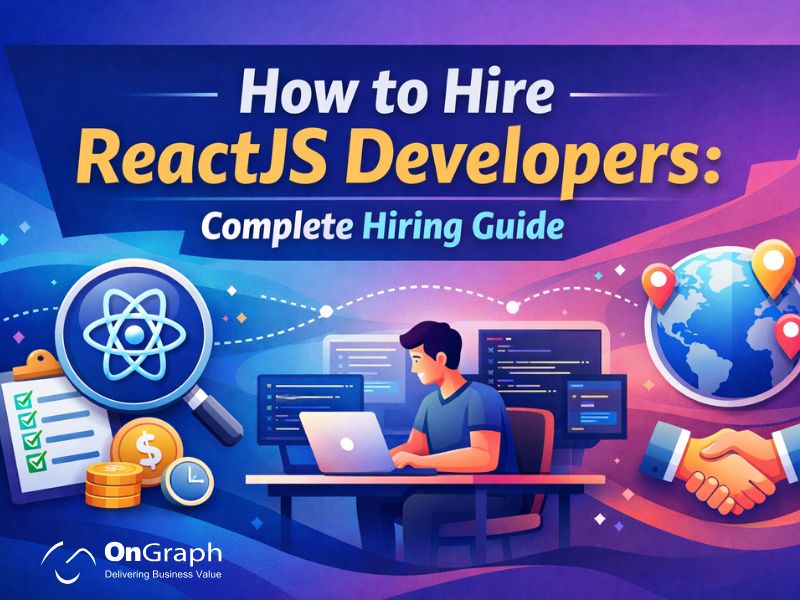Introduction
Artificial Intelligence (AI) is no longer a futuristic concept—it’s a present-day powerhouse driving real results for businesses. From enhancing support to streamlining operations, AI is transforming customer engagement and redefining how companies interact with clients and manage their day-to-day workflows.
Modern businesses are under pressure to deliver faster, more personalized, and more consistent service across multiple channels. With AI, this level of performance is not only achievable but also scalable. This blog explores how
AI integration is revolutionizing customer engagement and operational efficiency, along with real-world applications that can benefit businesses of all sizes.
The Shift from Manual to Intelligent Systems
For decades, customer engagement and operational workflows have relied on human-driven processes. Whether it was handling support tickets, updating spreadsheets, or managing follow-ups, manual systems were time-consuming, error-prone, and difficult to scale.
AI changes this by:
- Automating routine tasks (e.g., data entry, scheduling, reminders).
- Enhancing accuracy with data processing and validation.
- Allowing 24/7 availability through AI-powered chatbots and voice agents.
- Personalizing experiences with real-time behavioral insights.
By integrating AI into CRMs, contact centers, and workflow systems, businesses can now serve more customers with fewer resources and higher satisfaction.
AI in Customer Engagement
1. Intelligent Chatbots & Voice Assistants
One of the most visible ways AI is transforming customer engagement is through AI-powered chatbots and voice assistants. These systems can:
- Answer frequently asked questions
- Book appointments
- Process returns or cancellations
- Escalate complex issues to human agents
They operate around the clock and can handle multiple customer conversations simultaneously, improving both responsiveness and customer satisfaction.
2. Personalized Recommendations
AI algorithms analyze user data—like browsing history, past purchases, and preferences—to offer highly personalized product or service recommendations. This approach not only boosts sales but also deepens customer loyalty.
3. Sentiment Analysis
With natural language processing (NLP), AI can understand customer emotions and tone in messages, helping businesses respond more empathetically. It also helps support agents prioritize angry or frustrated customers for faster resolution.
AI in Operational Efficiency
1. Workflow Automation
AI tools like Robotic Process Automation (RPA) can automate repetitive administrative tasks such as:
- Invoice generation
- Inventory updates
- Lead assignment
- Report generation
This reduces the burden on staff and improves productivity across departments.
2. Predictive Analytics
AI helps businesses make better decisions by analyzing historical data and predicting future outcomes. For example:
- Forecasting demand spikes
- Identifying sales trends
- Detecting operational bottlenecks
This proactive approach enables smarter resource allocation and long-term planning.
3. Smart Scheduling and Calendar Integration
AI can automatically schedule meetings, assign tasks, and sync calendars by analyzing team availability and priority levels. This ensures that workflows remain organized and efficient without requiring constant human oversight.
Integrating AI Across Systems
The true power of AI lies in its ability to integrate across platforms. When AI connects your CRM, email system, calendar, helpdesk, and analytics tools, it creates a centralized intelligence hub that ensures consistent service and streamlined operations.
Some real-world integrations include:
- AI chatbots that update CRM records in real-time
- Voice bots that sync with calendars for appointment confirmations
- Email automation tools that personalize follow-ups based on customer behavior
Such integration eliminates silos and ensures every team—from marketing to customer support—works with the same accurate and up-to-date information.
Multilingual and Regional Customization
As businesses expand globally or target regional markets, AI’s ability to support multiple languages and dialects becomes crucial.
Advanced systems can now handle local languages with contextual accuracy, making customer interactions more natural and inclusive.
This is particularly useful in markets like India, where customers prefer interacting in Hindi, Bengali, or Tamil rather than English.
Real-Time Dashboards and Insights
AI-powered dashboards give managers a real-time view of operations, including:
- Customer service metrics
- Lead performance
- Sales conversion rates
- Operational efficiency indicators
Customizable dashboards help businesses track KPIs and respond quickly to issues before they escalate.
Benefits of AI Integration
Here’s a quick snapshot of what businesses can expect from integrating AI into their workflows:
- Faster customer service
- 24/7 availability
- Better personalization
- Reduced operational costs
- Improved data accuracy
- Scalable systems
- Smarter decision-making
- Higher customer satisfaction
Challenges to Consider
While AI offers significant benefits, businesses should also plan for:
- Quality training data for AI models
- Ongoing script optimization for bots
- API integrations with legacy systems
- Privacy and data security compliance
These challenges can be addressed with proper planning, technical support, and a scalable AI implementation roadmap.
Also read- How to Launch AI Companion & VOD Platform in Weeks?
Conclusion
AI is no longer just an enhancement—it’s becoming a foundational layer for business success. From customer engagement to operational workflows, AI integration empowers businesses to scale smarter, respond faster, and operate more efficiently.
Whether you’re a startup looking to automate support or an enterprise aiming to unify your CRM and call systems, AI offers flexible, cost-effective solutions tailored to your needs.
FAqs
AI can automate repetitive and time-consuming tasks like:
- Answering customer queries via phone, email, or chat.
- Scheduling meetings by syncing with your calendar.
- Uploading and managing data like leads, customer lists, and status updates.
- Segmenting your audience for targeted marketing.
- Providing real-time dashboards and notifications.
In essence, AI acts like a 24/7 assistant that works across your CRM, communication tools, and databases, ensuring faster operations, fewer errors, and better customer experiences.
Yes, absolutely. Our AI is built with multilingual capabilities, including Hindi, Kannada, Tamil, Bengali, and more. We use advanced speech recognition and Natural Language Processing (NLP) to ensure:
- Accurate understanding of spoken language.
- Context-aware responses in both formal and conversational tone.
- Seamless switching between English and regional dialects as needed.
This is especially useful for customer segments outside Tier-1 cities who are more comfortable in their native languages.
Yes. Our AI platform is fully integrable via APIs. It can connect with:
- CRMs like Salesforce, Zoho, HubSpot
- Calendars like Google Calendar or Outlook
- Phone systems (SIP-based, VoIP, or cloud PBX)
- WhatsApp and email tools
- Internal dashboards or PG/job systems as discussed
This integration ensures that all customer touchpoints and updates are synced in real-time—no more duplicate work or missed communications.
We follow industry-standard security protocols including:
- End-to-end encryption for data in transit and at rest
- GDPR and Indian IT Act compliance
- Role-based access and audit trails
- Data residency options for India and global locations
No data is used for AI training unless explicitly approved by you. We also offer on-premise deployment for sensitive use cases.
Pricing depends on:
- Number of AI calls per month
- Number of integrations (CRM, calendar, WhatsApp, etc.)
- Languages supported
- Custom feature requirements (e.g., real-time dashboards, call logs, bulk uploads)
For example, our base AI Calling Plan starts at INR 25,000/month for up to 40,000 calls. Custom enterprise plans and one-time integrations are priced additionally. We also offer trials for serious prospects.
A basic setup with AI calling + CRM integration + scripting takes 7–14 business days, depending on your availability and API access.
Here’s a typical timeline:
- Day 1–3: Requirements gathering & use-case finalization
- Day 4–6: Script building, CRM & phone system integration
- Day 7–10: Internal testing + UAT
- Day 11–14: Go live with monitoring dashboard access
For complex setups (multi-language, dashboards, WhatsApp), it can take 3–4 weeks.
Yes. Our system is built for scalability and reliability. It can handle:
- Thousands of concurrent AI calls
- High-volume data uploads from spreadsheets or third-party tools
Peak-time operations like job matching, onboarding, or festival campaigns
About the Author
Let’s Create Something Great Together!
Latest Blog
















